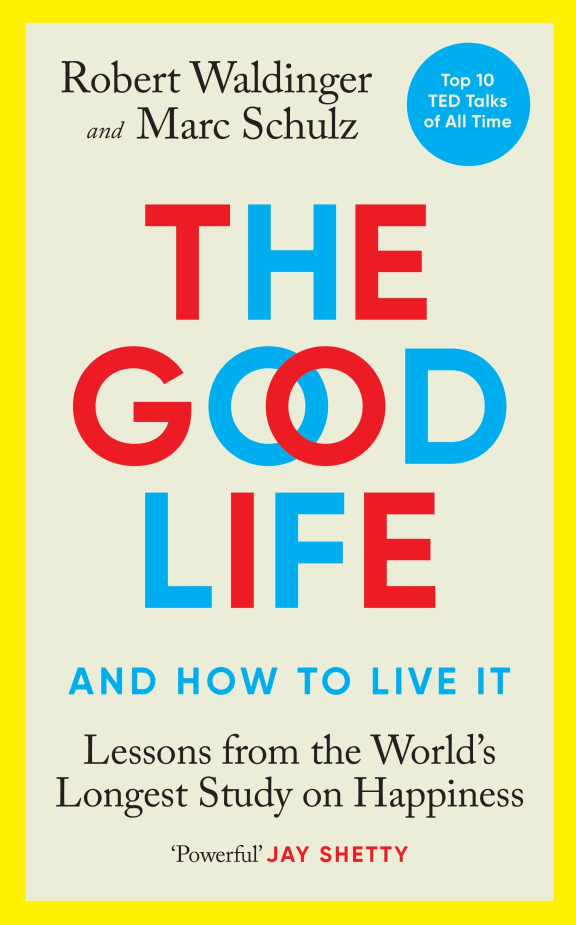Everyday human connection is the key to human happiness, an American researcher says.
Dr Robert Waldinger, clinical professor of psychiatry at Harvard Medical School, has been studying human happiness and the secret to it for decades. He's also the director of the Harvard Study of Adult Development, the world's longest-running research into happiness.
That study first began in 1938 with 228 Harvard students with researchers collecting data on their medical and mental health. In the 1970s, another 450 inner-city residents joined the study.

Photo: molchanovdmitry
Waldinger has co-authored a book The Good Life and How to Live It with Marc Schulz and has presented a TED Talk which has had over 24 million views.
He told Nine to Noon that the Harvard study started with two groups in 1938; one of Harvard College students and another group of boys from Boston's poorest neighbourhood.
“And not just their poorest neighbourhoods, but the most disadvantaged families, families, beset by domestic violence and severe parental illness and lots and lots of problems.
“And the question for both studies, for the privileged Harvard group and the underprivileged inner-city group was, how do young people stay on good developmental paths and thrive as they get into adulthood?”
The premise of the study was not about what goes wrong, but what goes right, he says.
“How can we predict who's going to do well, and so that's what made the study radical in 1938, when it began.”
The key findings of the are that human connection is the most important factor in human happiness and health, he says.
“That was a surprise, because, if you think about it, having better connections with others, warmer relationships, that would make you happier, sure.
“But how could the quality of your relationships make it more or less likely that you get heart disease, or type II diabetes or arthritis? Like, how could that be possible?”
Other research groups began to find the same thing, he says, backing up the Harvard study findings.
“Over the last 10 years, in our lab, we've been investigating how this works, how do relationships actually get into the body and change our physiology.”
Relationships seem to regulate stress, Waldinger says.
“If I have something happen to me that's upsetting today, I can feel my body rev up, my heart rate goes up, my blood pressure goes up, I start to sweat. That's normal, that's the fight or flight response that we are meant to have to deal with danger and stress.
“But then the body is meant to go back to equilibrium. Now, if I can go home, and call someone on the phone or talk to my partner, about my day and the upsetting event, I can literally feel my body calm down.
“What we think happens is that people who don't have good connections with others, don't have that ability to calm down. And so, they stay in a kind of low-level fight or flight mode with higher levels of circulating cortisol, higher levels of inflammation throughout the body.”
This can explain how the absence of good relationships could contribute to heart disease and arthritis, he says. But conversely, good connections promote positive chemical activity in the body.
These connections can be relatively minor but still have a beneficial effect, he says.
“There's been good research now that shows that the person who gets you your coffee in the coffee shop in the morning, or the person who rings up your groceries as you're going through the grocery line, chats with those people, actually give us little hits of well-being, so that even the relationships that we think of as inconsequential, turned out to matter for our well-being."

Photo: Penguin
His advice? Even if you’re shy, push yourself to make friends. Joining clubs and sharing interests is a powerful way to foster connection, he says.
“The research shows that if you volunteer for activities that you enjoy, you might join a gardening club, you might join a football league, you might join a group that's working to reduce climate change.
“And any of those things is a place where you could see the same people again and again, and you share an interest. And the fact that you share an interest means you have a natural place to start up conversations with people you don't know yet.”
Talking to strangers is another way to boost those good chemicals, he says.
“They did a study in the city of Chicago, where people spend a lot of time commuting on the commuter train. And they randomly assigned people to one of two things, either your job during your morning commute was to do what you normally do, be on your phone, listen to music, do whatever you do.
“The other group was assigned to talk to a stranger. And the people who were assigned to talk to a stranger told the researchers we don't think we're going to enjoy this at all. So, then everybody completed their assignment.
“And afterwards they ask people well, how do you feel now?
“The people who talked to a stranger were much happier than the people who did what they do every morning on the train.”
Finally, the Harvard study shows it's never too late to be happy.
“Because of the life stories we studied, 1000s of lives, and what we would see is that people who were sure they were never going to find friends, they were never going to find love, they were never going to be happy. They were sure of it, and then it changed.
“People in their 60s and 70s, even 80s, found friends for the first time or love, things turned around. And so, we know it's never too late because of all the lives we've studied.”

